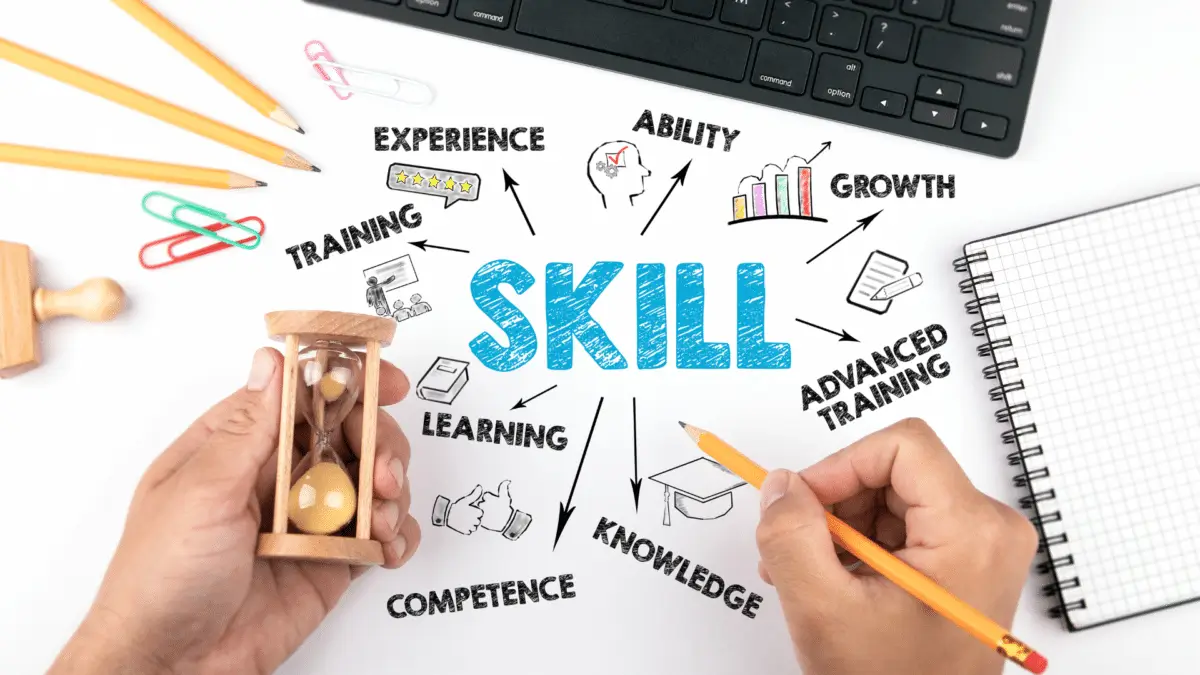Diversifying your skills is no longer a nice to have – it’s a must have to stay competitive and adaptable to change. Whether you want to grow in your current career or switch to a new one here’s how you can do it strategically.

Lifelong Learning.
Lifelong learning is at the heart of skill diversification. The pace of innovation means yesterday’s skills may not be relevant tomorrow. Commit to staying up to date with trends and developments in your industry and beyond.
Online learning platforms like Coursera, LinkedIn Learning and Udemy have courses in everything from coding to creative writing.
Look into certifications that are recognized in your industry.
For example a project manager could get certified in PMP (Project Management Professional) or Agile methodologies. These certifications not only deepen your skills but also show your commitment to growth.

Also look into traditional learning avenues like workshops and seminars. These not only expand your knowledge but also give you opportunities to network with industry professionals.
Soft and Hard Skills.
A balanced skill set includes both technical (hard) skills and interpersonal (soft) skills. Technical skills enable you to do a specific task, soft skills enable you to collaborate, communicate and lead.
In 2025 technical skills like data analysis, programming and digital marketing are in high demand. Learn to use tools like Python for analytics, Google Ads for marketing or Canva for design. Soft skills like adaptability, emotional intelligence and critical thinking are equally important. These skills enable you to navigate complex situations, manage teams and connect with diverse stakeholders.
Technology and AI.
AI is affecting the job market and redefining job roles, creating both challenges and opportunities. Jobs that involve repetitive tasks are being automated, while roles that require creativity, strategic thinking and human interaction are on the rise. AI is impacting the job market by pushing professionals to upskill and align with new technological demands.
Knowing AI tools and their applications in your industry gives you a competitive edge. Whether it’s using AI powered analytics platforms, mastering machine learning algorithms or simply being proficient in AI driven productivity tools like ChatGPT, being familiar with AI technologies makes you a forward thinking professional.
Interdisciplinary Skills.
The lines between industries are blurring and having skills that span multiple domains can differentiate you. For example a healthcare professional with data analytics skills can play a key role in healthcare informatics. A marketing professional who knows how to code can create more effective digital campaigns.
Find areas where your existing skills overlap with other domains and invest in those. This not only makes you more versatile but also opens up career paths that traditional skill sets may not have access to.
Entrepreneurial Mindset.
In a world of change an entrepreneurial mindset is priceless even if you’re not planning to start your own business. This mindset encourages innovation, problem solving and resilience – skills that are essential in today’s job market.
Take initiative in your current role by identifying inefficiencies and proposing solutions. Develop financial literacy to better understand the business side of your industry. By thinking like an entrepreneur you’ll be better equipped to adapt to market changes and seize opportunities.
Turn Personal Interests into Professional Growth.
Sometimes personal interests can lead to unexpected professional benefits. Hobbies like photography, creative writing or public speaking can translate into skills in your career. For example photography skills can enhance your marketing materials while public speaking can improve your ability to pitch ideas or lead teams.
Try hobbies that challenge you to think differently or learn new technologies. These will not only expand your capabilities but also show you’re willing to take on challenges and think outside the box.
Keep an Eye on Emerging Trends.
Being ahead of the curve on future trends can guide your skill diversification. Research industries that are growing fast like renewable energy, fintech and biotechnology. Think how your existing skills can be applied to these areas and what additional skills you’ll need to stay relevant.
For example sustainability is a growing focus across industries. Knowing about sustainable practices, green technology or corporate social responsibility can make you an asset to companies that have environmental goals.
Plan for Yourself.
Skill diversification requires a plan and consistency. Start by assessing your strengths and weaknesses. Identify the skills that are most relevant to your career goals and create a timeline to get them.
Break your plan into smaller chunks. For example dedicate specific hours each week to learning new skills or attending workshops. Track your progress and celebrate your milestones to stay motivated.
In 2025, being able to adapt and diversify your skillset is more important than ever. The rapid pace of technology including AI’s impact on the job market means professionals need to adopt lifelong learning, explore cross industry skills and develop both technical and soft skills.
Leave a Reply